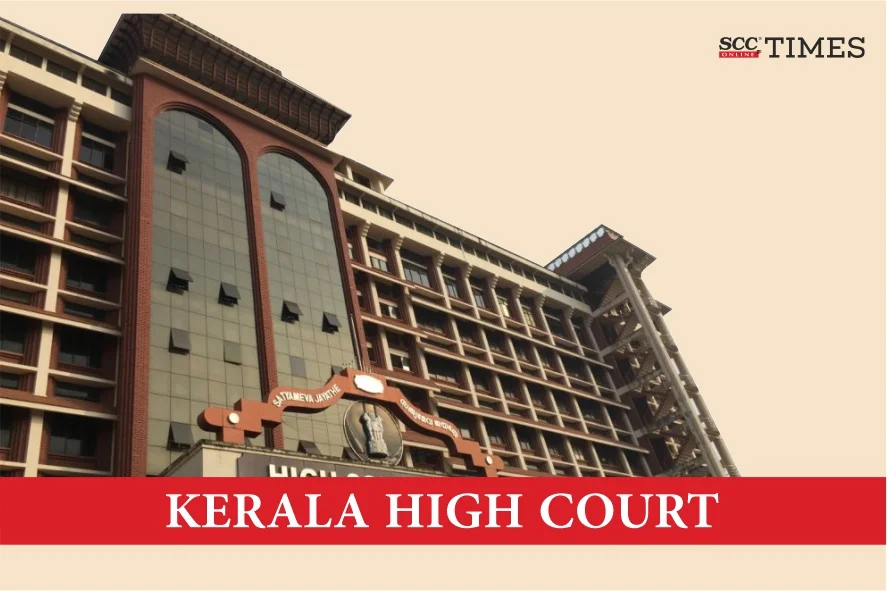Kerala High Court: In a revision petition under Section 397 of the Code of Criminal Procedure, 1973 (‘CrPC’) filed by petitioner seeking maintenance from father under Section 20(1)(d) of the Domestic Violence Act, 2005 (‘D.V. Act’) and challenging the order of the lower court, P.G. Ajithkumar, J., while dismissing the petition said that magistrates dealing with matters of maintenance under Section 20(1)(d) of the D.V. Act, should specify in the order whether maintenance was being ordered under Section 125 of the CrPC or under Section 20(3) of the Hindu Adoption and Maintenance Act, 1956 (‘HAMA’).
Background
The petitioner, through her mother, filed a petition before the Additional Chief Judicial Magistrate, claiming maintenance. At that time, she was 14 years old. Exercising powers under Section 20(1)(d) of the D.V. Act, the Magistrate ordered the father of the petitioner, to pay monthly maintenance of Rs.2,000/-. The father’s appeal against this order was unsuccessful. The petitioner attained majority on 02-07-2012, but her father continued to pay maintenance until April 2015. Subsequently, he filed an appeal seeking exemption from continued maintenance payments.
The father’s contentions were twofold: first, that the petitioner’s attainment of majority should have terminated his liability to pay maintenance, and second, that the petitioner had gone abroad and was earning sufficient income from her employment. The petitioner did not dispute the date of her attaining majority but argued that she was entitled to maintenance as long as she remained unmarried and without income. The Magistrate disagreed and dismissed the petition. The petitioner’s appeal to the Sessions Court was also dismissed. Therefore, the petitioner has filed the instant revision petition under Section 397 of the CrPC, challenging these orders.
Issue
Whether an order directing a Hindu father to pay maintenance to his unmarried daughter under Section 20(1)(d) of the DV Act has the character of an order for maintenance under Section 125 of CrPC or maintenance under Section 20(3) of the HAMA?
Decision and Analysis
The Court noted that if the order to pay maintenance recognized the right of the petitioner under Section 125 of CrPC, the father’s obligation ceased once the daughter attained majority, provided she did not suffer from any physical or mental abnormality or injury, and conversely, if the order recognized the right under Section 20(3) of the HAMA, the obligation continued until the daughter gets married or could support herself. This question had been previously settled.
The Court referred to Vikraman Nair v. Aishwarya, 2018 SCC OnLine Ker 3492, which held that a Hindu father’s obligation to maintain an unmarried daughter who cannot support herself is personal and legal. The Court further took note of Sneh Prabha v. Ravinder Kumar, 1995 Supp (3) SCC 440, and noted that a father must pay maintenance to a non-earning daughter until her marriage.
The Court further noted that both the Trial Court and the Appellate Court had treated the order of maintenance as falling under Section 20(3) of the HAMA solely because the parties were Hindus.
The Court said that the character of the maintenance order under Section 20(1)(d) of the D.V. Act affects its enforceability, and that if the order is under Section 20(3) of the HAMA, the father’s liability continues until the daughter marries or becomes self-reliant and the father must prove either of these facts to be relieved from the obligation to pay maintenance.
The Court did not agree with the lower Courts’ order directing the father to pay maintenance under Section 20(3) of the HAMA. The Court noted that Section 20(1)(d) of the D.V. Act states that maintenance for the aggrieved person and her children can be ordered, including under Section 125 of the CrPC or any other applicable law.
The Court said that the assumption that the maintenance order was under HAMA because the parties were Hindus was incorrect, as Section 125 of the CrPC applied to all. Therefore, the order to pay maintenance could not be assumed to be under Section 20(3) of the HAMA. Further, the Magistrate did not specify which right of the petitioner the maintenance order recognized.
The Court decided that it was not appropriate to interfere with the impugned orders at such a later stage due to the lack of specificity in the order, which was passed under Section 20(1)(d) of the D.V. Act. The Court said that Magistrates handling maintenance claims under Section 20(1)(d) of the D.V. Act should specify in their orders whether the maintenance is under Section 125 of the Code or Section 20(3) of the HAMA. The petition was thereby dismissed.
[Shilpa v. K.K. Rajeevan, 2024 SCC OnLine Ker 2913, decided on 14-06-2024]
Advocates who appeared in this case :
Advocates for the Petitioner: Subal J. Paul, Sheeba Thomas, Advocates
Advocates for the Respondent: Pushpalatha M.K., Sr. Public Prosecutor, Amrin Fathima, Stefin Thomas, Kavya P.R., Anjana Sanjay, Advocates








